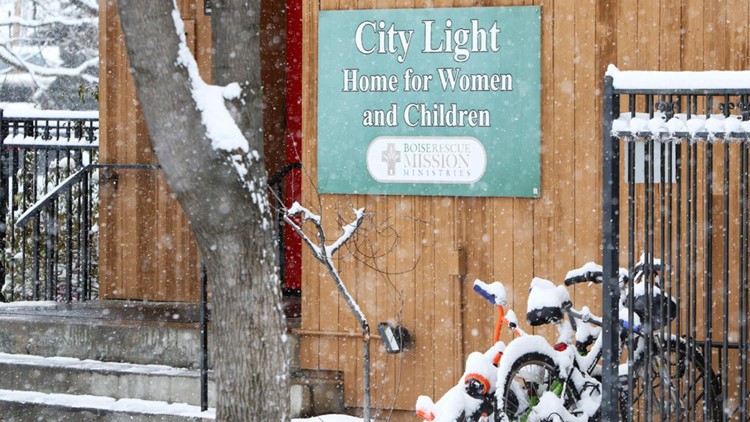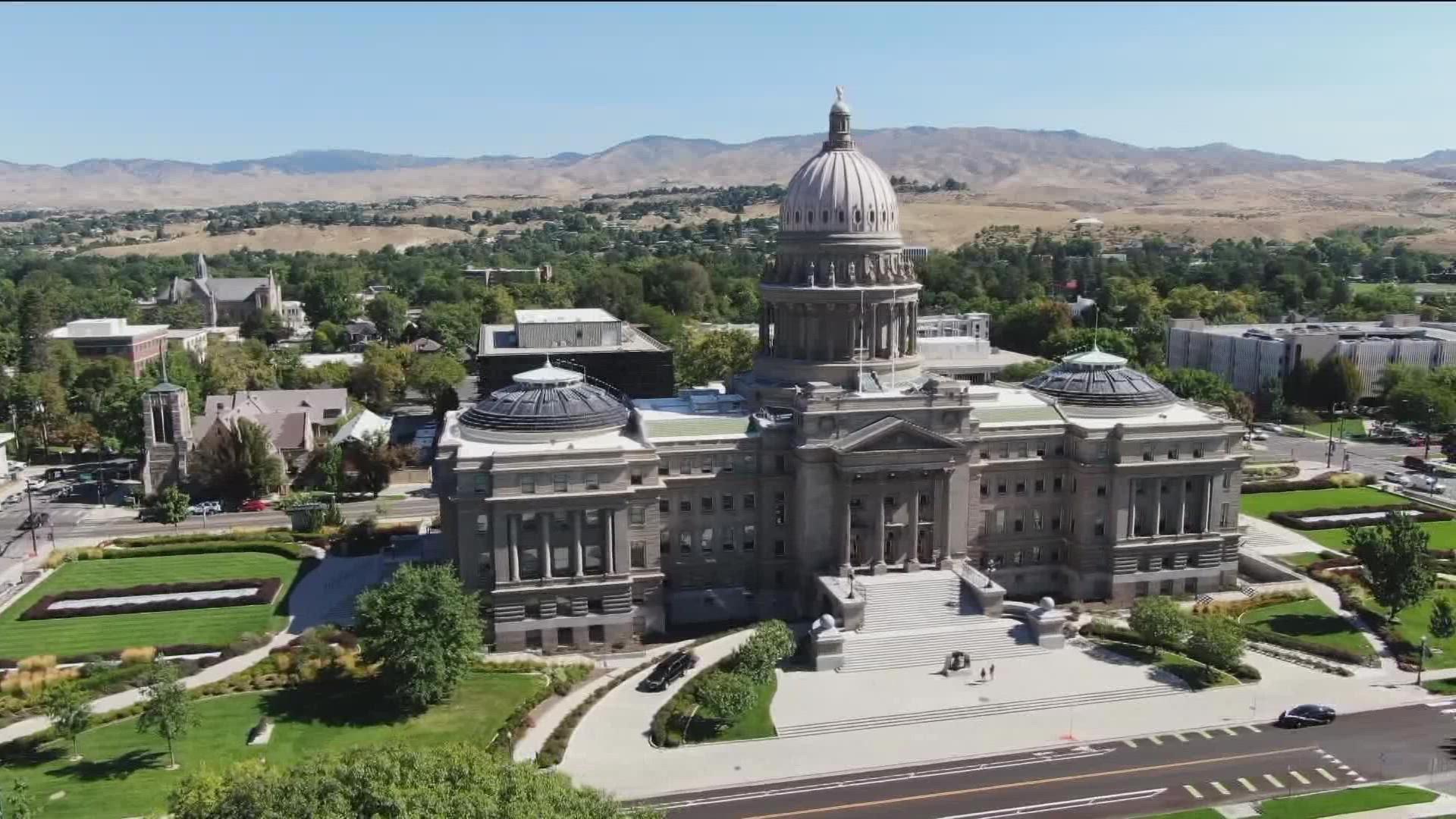BOISE, Idaho — This article originally appeared in the Idaho Press.
Many have heated homes to huddle in during Idaho's frigid winter months, while some have nothing.
If someone doesn't have a home — or shelter — they are in danger of hypothermia, illness and injury as low temperatures fall upon the state this winter season with snow blanketing the Treasure Valley.
Jason Billester, Boise Rescue Mission’s vice president of development, described a story that vividly stands out in his mind.
A young woman had shown up on the steps of City Light Home for Women. It was snowing, Billester said, extremely cold — and the woman only had one flip-flop hanging from her foot. Billester recalled she had just escaped an attack from her boyfriend.
The woman was carrying her baby in her left arm. Her right arm was broken.
“There's nothing worse than being stuck out in the cold, no place to go, and having an empty stomach,” Billester said.
Cold weather is expected to continue overtaking the valley this week, with overnight low temperatures dropping into the single digits. Such conditions will make it more difficult — and potentially life threatening — for those who cannot take cover inside a warm house.
“Cars aren’t meant to be slept in,” Billester said.
According to the National Coalition for the Homeless, over 700 people experiencing homelessness die every year in the U.S from hypothermia.
“With nowhere to stay except the streets, people experiencing homelessness have a much higher risk than the general population of developing exposure-related conditions such as hypothermia and frostbite. These conditions can be immediately life threatening and may also increase the risk of dying from unrelated conditions in the future,” the coalition’s website states.
On Tuesday night, Billester said that the Boise Rescue Mission had more than 300 guests sleep in its beds. The temperature was as low as 15 degrees that evening.
“Homelessness is hard, but it’s even harder during the holidays,” he said.
Individuals experiencing homelessness could have a number of issues affecting their ability to afford shelter. Domestic violence, experiencing addiction, untreated mental illness, past trauma, low wages, evictions and more can all be pieces to a bigger, broader puzzle of being without a home.
A report this year by the National Law Center on Homelessness & Poverty found that across the nation, there are fewer shelter beds than homeless people. The gap leaves thousands of people in a city without shelter.
Additionally, said the NLCHP report, a lack of affordable housing is causing people to fall from housing. In Boise alone, BoiseDev reported, housing is scarce, driving up prices and leaving lower-income workers at risk of experiencing homelessness.
Jodi Peterson-Stigers, the executive director for Interfaith Sanctuary, said those who find themselves without housing that develop cold-related injuries are often those who have debilitating mental illnesses that kept them away from a shelter, or those that have recently fallen from housing and simply do not know where to go to access warmth.
Interfaith Sanctuary is a day shelter that doubles as an emergency overnight facility. It partners with Phoenix Rescue Mission and the Corpus Christi House, other day shelters which offer help for those seeking warmth. Interfaith’s shelter is for single men and women, but it also has a hotel for families experiencing homelessness.
Peterson-Stigers said the shelter does its best to make sure everyone is served. Interfaith’s emergency shelter is currently at capacity, but their team works with the Boise Rescue Mission to make sure everyone has a safe place to go at the end of the night, she said.
Peterson-Stigers said they can’t always be the eyes and ears out in the cold weather, so they look to the community for help.
“If people see someone that they're concerned about and they don't know what to do, they can call Interfaith Sanctuary. We operate all day long,” she said.
“We will go and help, and we'll provide the resources so they don't have to do anything if they're not comfortable. But, if they take the extra step to call our shelter, or CATCH, we are more than happy to go and try and get them into a safer situation.”
CATCH is an independent re-housing agency in the city of Boise that works with shelters to help stabilize families in need.
Peterson-Stigers encourages community members to be on the lookout — keep extra gloves, scarves, or warm clothing in their cars in case they see someone who is in need. Those who know about services they can access are easier to help. Those who have just recently fallen out of housing, she said, are in the most danger when it comes to freezing temperatures and lack of resources.
“Give them out to those people who don't know how to access these services, because the people who know (how to access services), we keep them safe. If they don't know, that's when they're in great danger,” she said.
Dawn Tolan, West Ada School District's counseling coordinator, said there are a number of families in the district who classify as homeless.
Some are doubled up with family or friends, while others are in slightly tougher situations. The district works with church groups and social workers to get some bills paid for those families during the colder months so they aren't struggling or trying to find other places of warmth, Tolan said.
“We have paid utility bills for several families that would just need a little help to get back on track, and can sustain after that assistance,” she said.
Currently, the Boise Rescue Mission has five shelters that serve over 600 meals a day, seven days a week. The mission provides warm clothing, movies and board games for children. Those who are sick are isolated in a solo room, which has become useful during the pandemic, Billester said.
Shelters’ biggest needs are money, food and clothing, he added.
Billester said the mission needs a lot of help, but with it, it can help a lot of people.
“We live in the most generous and compassionate community,” Billester said. “Everyone needs a warm bed to sleep in at night.”
This article originally appeared in the Idaho Press. Read more at IdahoPress.com
Watch more Local News:
See the latest news from around the Treasure Valley and the Gem State in our YouTube playlist:



